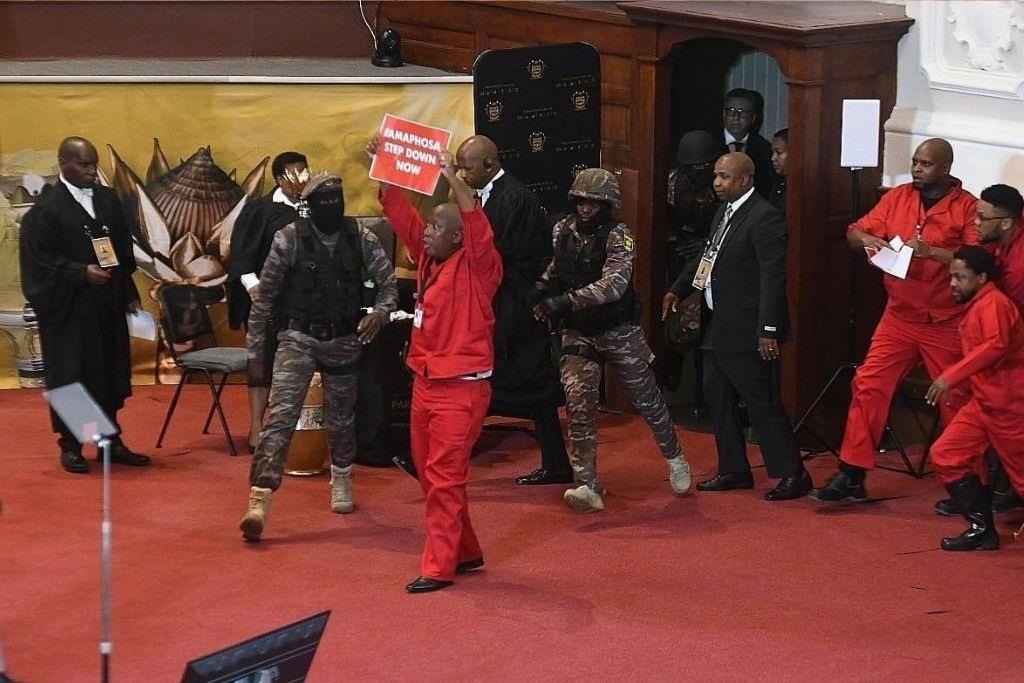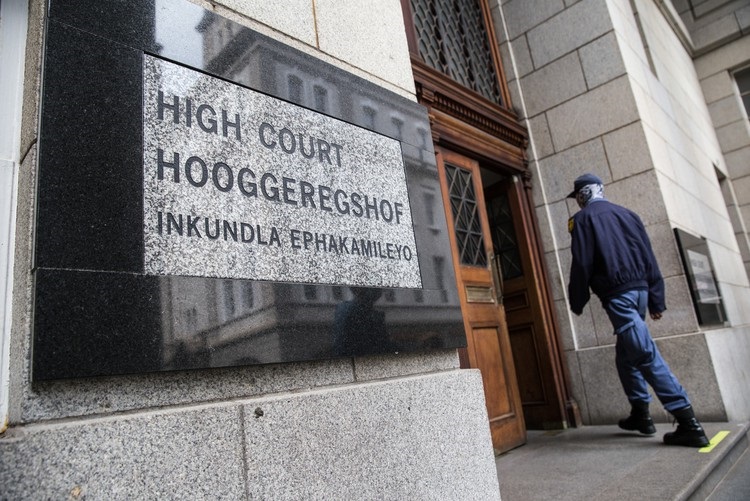
- The EFF has lost a court bid to prevent Parliament from implementing new rules at this year’s State of the Nation Address.
- The Western Cape High Court found that the EFF had failed to satisfy the requirements for the relief sought.
- The new rules expressly outlaw gross disorderly conduct and allow the Speaker to remove members from the virtual platform for disorderly behaviour.
The EFF has suffered another blow in the Western Cape High Court.
This time, the party lost its bid to interdict Parliament from applying newly adopted House rules that will prevent the chaos that has characterised its conduct at the State of the Nation Address (SONA).
In its urgent application, the EFF sought to prevent Parliament from applying the rules at this year’s SONA on Thursday.
But Judge Deidre Kusevitsky dismissed the application for interim relief.
In her judgment, Kusevitsky said before a court grants an application for an interim interdict, it must be satisfied that the applicant (EFF) has good prospects of success in the main review application.
“The claim for review must be based on strong grounds which are likely to succeed. This requires the court adjudicating the interdict application to peek into the grounds of review raised in the main review application and assess their strength. It is only if a court is convinced that the review is likely to succeed that it may appropriately grant the interdict.
“The rationale is that an interdict which prevents a functionary from exercising public power conferred on it impacts on the separation of powers and should therefore only be granted in exceptional circumstances,” she said.
READ | Shivambu’s bid to prevent Parliament docking his pay over VBS loot struck from court roll
She found that the EFF had failed to satisfy the requirements for the relief sought.
“The courts have reiterated the separation of powers and the duty and obligation for all arms of state to at all costs, be mindful thereof and not usurp its powers. It is also up to that organ of state to regulate its own procedures and processes. There are therefore no exceptional circumstances present which would allow me to breach the separation of powers doctrine,” she said.
Kusevitsky also noted Parliament’s argument that the amendments “were never conceivably contemplated” and that a MP would ever disregard and disrespect the decorum of Parliament.
She said:
They also contend that the rules sought to be impugned do not represent a significant departure to existing parliamentary practice and procedure or the Rules of Parliament which existed since at least 2015. Instead, they argue, the new rules merely codify existing parliamentary practice and procedure.
According to the new rules no member will be allowed to interrupt the president when he makes his first speech at the opening of Parliament after a national election. The same will apply to SONA.
The new rules expressly prohibit bringing a weapon or dangerous or threatening articles into the chamber.
Placards are not allowed, and members will not be allowed to take photographs or videos during joint proceedings.
The new rules also expressly outlaw gross disorderly conduct.
The rules allow the speaker to remove members from the virtual platform for disorderly behaviour.






Recent Comments